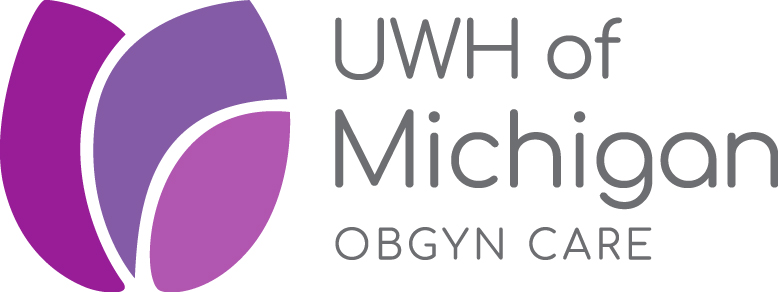Postpartum Depression: You’re Not Alone
May is Mental Health Awareness Month, emphasizing the significance of supporting mental well-being, especially for mothers. Postpartum depression, also known as PPD, affects many women and is characterized as being overcome with feelings of sadness and anxiety after childbirth. Understanding the signs, depending on accurate resources, and receiving support are essential for the proper management of PPD.
Remember, seeking help for postpartum depression is a courageous step towards healing, and at Walnut Lake OBGYN & Wellness, we are here to support you.
Understanding Postpartum Depression
Postpartum depression is a medical condition that affects up to 1 in 7 women after giving birth. It is characterized by strong feelings of sadness, anxiety, and tiredness that last for a long time after childbirth. Symptoms of PPD include feeling depressed most of the day, every day, feeling shame or guilt, having severe mood swings, and having trouble bonding with your baby. This condition can make it hard for mothers to take care of themselves and their babies, causing strain on the entire family.
Dispelling Myths & Misconceptions About PPD
PPD is surrounded by myths and misconceptions that can hinder understanding and support for affected mothers. By dispelling these misconceptions, we can provide the necessary support and empathy for women navigating through the challenges of this mental condition.
PPD is NOT ‘The Baby Blues’
One common misconception is that PPD is the same as the baby blues, but in reality, postpartum depression is more severe and lasts longer than the temporary mood swings experienced after childbirth.
PPD is NOT Personal Weakness
PPD is also not a result of personal weakness or failure but rather a medical condition that requires treatment.
PPD is NOT Limited to First-Time Mothers
Additionally, it’s important to debunk the myth that only first-time mothers can experience PPD, as recurrent episodes are possible.
Risk Factors & Causes of PPD
Biological Factors
Biological factors play a significant role in the development of postpartum depression. Hormonal changes during pregnancy and after childbirth, such as a sudden drop in estrogen and progesterone levels, can impact a woman’s mood and increase vulnerability to PPD. Additionally, certain genetic variations related to neurotransmitters and stress response have been associated with a higher risk of developing this condition.
Psychosocial Factors
Psychosocial factors can also contribute to the development of postpartum depression. Women with a history of depression or anxiety, a lack of social support and resources, and stressful life events such as financial issues or relationship problems are at a higher risk of experiencing PPD. Healthcare providers need to consider these psychosocial factors in assessing a woman’s risk for PPD and provide appropriate intervention and support to best meet her needs.
Understanding these factors can help healthcare providers, like Walnut Lake OBGYN & Wellness, tailor treatments, and support systems to address PPD and effectively provide optimal care for new mothers.
The Effects of PPD on Mothers & Families
Postpartum depression can have profound effects on mothers and their families. Mothers with PPD may face physical challenges such as fatigue, changes in appetite, and difficulty sleeping, impacting their overall well-being. Emotionally, they may experience feelings of sadness, guilt, and worthlessness, making it challenging to bond with their baby. This can strain the mother-infant relationship and disrupt the family dynamics, leading to a sense of isolation and stress.
If left untreated, PPD can have long-term consequences, affecting the mother’s mental health and potentially impacting the child’s development and overall family stability. It is crucial to recognize these effects and provide the necessary support to navigate through the challenges of PPD together as a family.
Seeking Help & Support
Seeking help and support is crucial for women experiencing postpartum depression. Early intervention and professional help can significantly improve the outcomes. Therapy options such as counseling and support groups provide a safe space for women to express their feelings and gain valuable coping strategies. Specialized care from healthcare providers can offer tailored support and treatment for PPD. Women need to know that they are not alone and that resources are available to help them through this challenging time.
Coping Strategies & Self-Care Practices
Coping strategies and self-care practices can help manage postpartum depression symptoms.
- Create a self-care routine: It can help alleviate stress and improve mental well-being.
- Prioritize healthy sleep habits: While this can be difficult with newborn, small changes can help your sleep routine!
- Healthy Eating Habits: Consuming food that nourishes your body helps your physical and mental health.
- Physical Activity: Going on walks and moving helps release endorphins, boosting your mood.
- Mindfulness & Meditation: These moments will help provide a moment of calm, helping improve your mood.
- Don’t Suffer in Silence: Reach out to loved ones or support groups, as they can provide an outlet for sharing experiences and connections.
By incorporating these self-care practices into daily life, women can empower themselves to navigate this mental condition with resilience and strength.
Breaking the Stigma & Raising Awareness
Breaking the stigma surrounding postpartum depression and mental health is critical to encourage women to seek help and support. Unfortunately, the myth that women should be able to “handle” postpartum challenges on their own can be pervasive, leading many women to suffer in silence. It is important to create open conversations to raise awareness and educate communities about the prevalence of PPD and its impact on women’s well-being.
By fostering supportive and empathetic environments, loved ones can provide a critical source of encouragement and strength for women experiencing PPD. Together, we can work towards overcoming the stigma surrounding postpartum depression and ensuring that all women have access to the support and resources they need to thrive.
Reach Out to Walnut Lake OBGYN & Wellness
As Mental Health Awareness Month comes to a close, it is crucial to continue discussing the impact of postpartum depression and offer support to those affected. Remember, you are not alone in your journey. If you or someone you know is struggling with postpartum depression, reach out for help.
Walnut Lake OBGYN & Wellness is here to provide specialized care and support. Let’s break the silence, support one another, and create a community where every mother feels seen, heard, and supported. Together, we can overcome the challenges of PPD and help mothers and families thrive.

